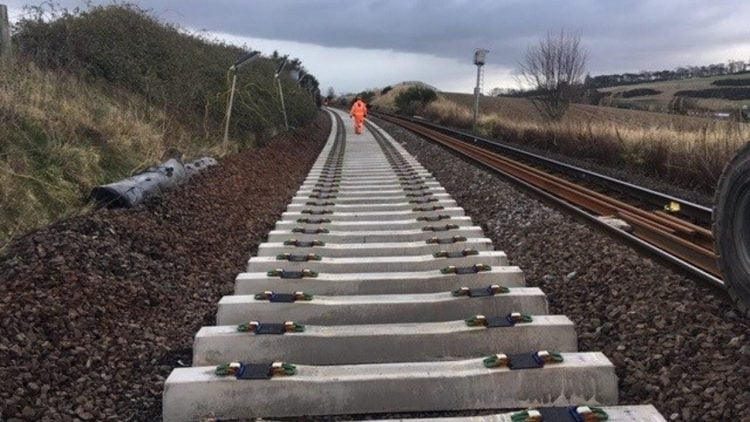On Tuesday 31 October, the Office of Rail and Road (ORR) has set out its final determination of Network Rail Scotland‘s plan for the five years from April 2024.
Network Rail Scotland submitted its interim plan in February and the ORR responded with its draft determination in June. Network Rail responded by revising its plans in several areas, including on performance and on increasing spending on asset sustainability.
Network Rail Scotland’s plan for the five-year period, known as Control Period 7 (CP7), will cost £4.6bn to implement.

The key points of the ORR’s decision are:
Train performance
ORR reiterates the need for Network Rail Scotland to work with ScotRail and other operators to ensure that trains run punctually, with a reduced number of cancellations, even as passenger numbers rise.
Scottish Ministers have set an objective for Network Rail Scotland to contribute to ScotRail’s target of 92.5% trains arriving at their final destination within five minutes of their scheduled arrival time. ORR will hold Network Rail to account for its contribution to this target.
ORR has included a £50m fund to further support performance improvement in Scotland.
Freight growth
ORR sets challenging targets for Network Rail Scotland’s delivery for freight operators, aiming to achieve 8.7% growth in rail freight for Scotland. Network Rail Scotland will need a robust action plan to deliver this.
ORR requires Network Rail Scotland to reduce freight cancellations from their current levels. It also continues to cap track access charges for freight operators below cost.
Renewing the railway
In its draft determination in June, ORR challenged Network Rail Scotland to increase its planned spending on core assets. It has welcomed the updated plan’s inclusion of an extra £44m for structures in Scotland.
ORR believes that Network Rail Scotland’s framework for understanding and managing the change in risk from carrying out fewer renewals and moving to greater maintenance of existing assets.
Delivering value for money
ORR approves of Network Rail Scotland’s plans to reduce costs by £410m, although it describes this target as “challenging”.
Managing risks effectively
ORR has acknowledged that the development of Network Rail’s plans and its review of them have been made more difficult by high inflation and financial uncertainty. It emphasises that effective risk management and risk funding will be important.
ORR requires Network Rail Scotland to maintain and manage sufficient levels of risk funding, which it sets at £225m.
Protecting the environment
ORR expects Network Rail to cut its carbon emissions by at least 20%, and has set a target for efforts to conserve and enhance biodiversity.

Will Godfrey, ORR’s Director, Economics, Finance and Markets, said: “I’m pleased to see that Network Rail Scotland has responded well to our challenges to its interim plans and the result is more robust and customer focussed plans which we believe will deliver better outcomes for passengers and freight.
“The plans are challenging but achievable. Our five-year funding and regulatory settlement provides stability and a platform for the industry to plan and invest. This is important not just for Network Rail Scotland, but also for passenger and freight operators and the supply chain.
“Network Rail Scotland must now set out how it will deliver on our final determination.”
Andrew Haines, Network Rail chief executive, said: “The UK and Scottish Governments’ funding commitment and today’s news is a significant vote of confidence in the industry’s future. The impact of inflation, tight public finances and the need to invest more to manage the impact of more frequent extreme weather on the infrastructure does mean that our funding will need to go further than ever before.
“Throughout CP7 we are committing to delivering extensive investments across the length and breadth of the network. In addition to improvements to safety, we’ll work to boost train performance, usher in new technologies, invest significantly more funds to tackle climate change as well as make £3.6 billion of efficiency savings.”





Responses